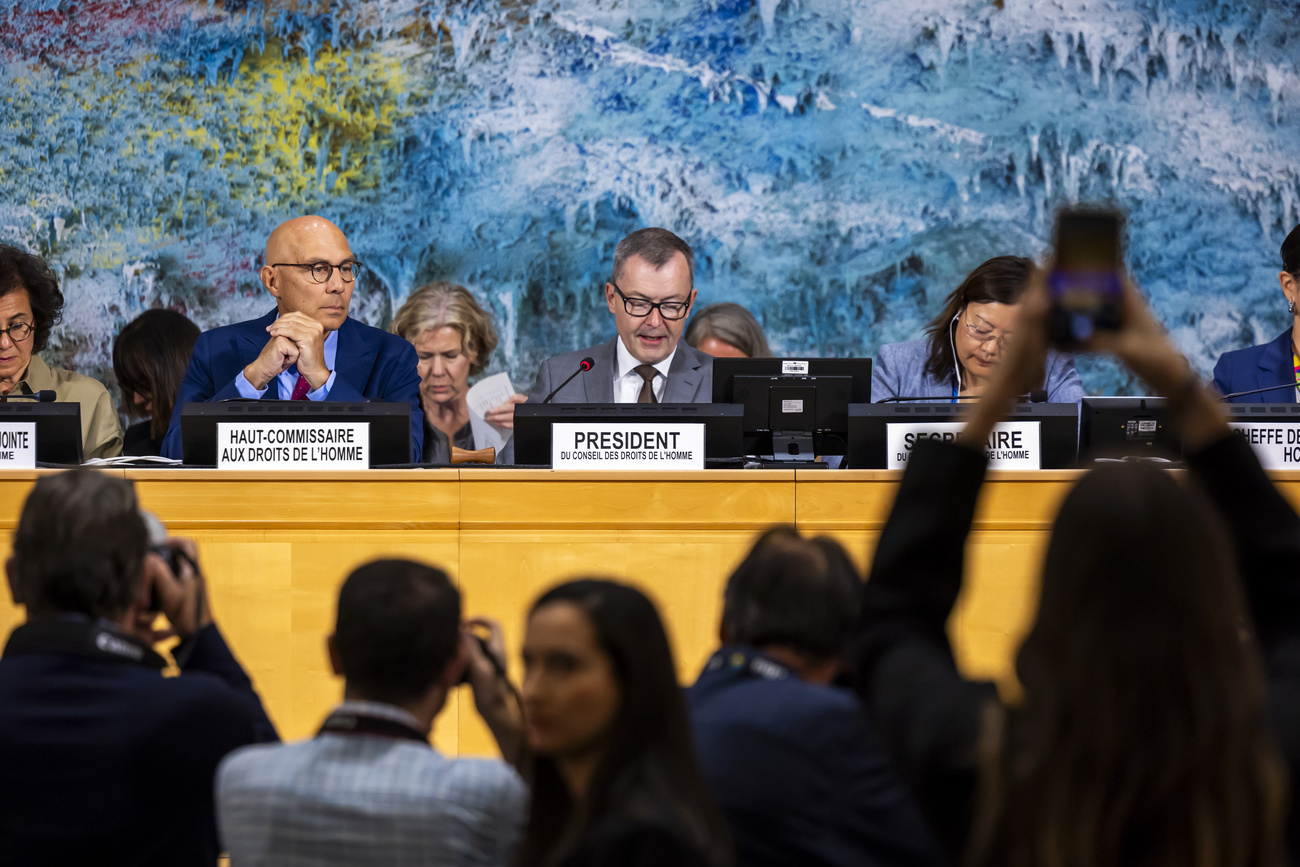
“Switzerland never feared unified Germany”
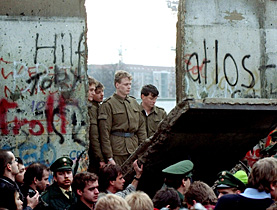
Germany this year marks 20 years since the Berlin Wall came down - an event which caused no alarm in Switzerland at the time, according to the Swiss ambassador there.
In an interview with swissinfo.ch, Christian Blickenstorfer says Switzerland saw that the unified Germany was well anchored in the European Union.
Blickenstorfer, who has strong family ties to Germany, says both countries are very dependent on each other – despite the difference in size. Germany is Switzerland’s biggest trade partner and accounts for a fifth of merchandise exports and a third of imports.
Bilateral relations were recently strained after German Finance Minister Peer Steinbrück criticised Switzerland’s tax evasion and banking secrecy laws.
swissinfo.ch: What do you consider to be the main strengths of the relationship between Germany and Switzerland?
Christian Blickenstorfer: It’s enough to take the past six years; we are very similar in our democratic system, we are very dependent on each other as far as economical issues are concerned and Germany was extremely helpful to Switzerland in its dealing with the growing European Union. That is something probably not even the Swiss population realises.
But Swiss politicians and civil servants who had to deal with that were always aware that without German assistance we would never have got as far as we did in securing our bilateral relations with the European Union.
swissinfo.ch: When you talk about Switzerland’s relationship to Germany are you speaking for the whole nation or German-speaking Switzerland?
C.B.: I am from the German-speaking part of Switzerland, so it is more obvious to me and my colleagues that this relationship should be so close than it is to our French-speaking countrymen. Their relationship to France, I would think, is not as tight as that of German-speaking Switzerland to Germany. That’s a feeling I have, but I might be wrong.
swissinfo.ch: Why might that be?
C.B.: I think again economically Germany is much more important for Switzerland, and for the whole of Switzerland, than France is. And then again the centralised system that France has had for centuries makes it a less likely partner than Germany with its clear federalist structures since 1949.
swissinfo.ch: This year Germany celebrates 20 years of physical reunification. How did Switzerland react to the prospect of Germany becoming one nation again back in 1989?
C.B.: Unlike Britain, and in particular the concerns of the then Prime Minister Margaret Thatcher, Switzerland was never afraid of a unified Germany.
But at the same time Switzerland realised that in 1989 it had become very clear that Germany had become a very strong member of the European Union. And being so fully integrated in Europe there was no risk that Germany would have again the history [of starting war] it had twice in the twentieth century.
swissinfo.ch: Was there a fear of an accelerated brain drain from Switzerland now that a whole new area of Germany had opened up with new opportunities for investment, industry and ideas?
C.B.: I think interestingly enough no, because it is the other way around. Our standard of living, our salaries are higher and so we are more likely to attract the free movement of people now in the European Union after Switzerland agreed to that. So many more come to Switzerland than the other way round. But the Swiss population in Germany has also increased over the past five to seven years.
For Switzerland the flow of intellectual capacities is a global issue. There were concerns in the 90s that our brightest people would emigrate to America. That’s why we created a science consulate in Boston, whose task was to make sure that those who wanted to return to Switzerland could do so easily through the consulate. Many took advantage of this opportunity. We have established a similar model here in Germany.
We’ll see if the situation changes during this current economic downturn, but on the whole we are pleased with the constant flow back and forth between the two nations.
swissinfo.ch: What about the fear of an influx of Germans into Switzerland – does that create tensions within the communities?
C.B.: There was certainly an awareness in some parts of the population that this influx could undercut salaries. But the past three or four years have shown clearly that the concerns of those who were opposed to the free movement of people in Europe were unfounded. Even now with the economic downturn also in Switzerland automatically the influx has become small.
swissinfo.ch: As the European Union continues to expand, where do you see Switzerland in ten years’ time?
C.B.: It is difficult to say, but probably we will still be a non-member of the European Union because the mood in the Swiss population is not yet such that the government can put the question of joining the EU to the people.
There are at least two reasons for that. With our direct democratic system and our participation on the lowest levels – communal levels – Brussels seems extremely far away. For some Swiss people Bern is already very far away for them. And that bureaucratic colossus that they have set up in Brussels is something the Swiss don’t really like.
And the other thing is we would probably have to change, or adapt or even reduce some of our direct democratic system. I think the Swiss prefer to keep their independence because that is really something very close to their hearts.
Andrew Littlejohn in Berlin, swissinfo.ch
In the summer of 1989 Hungary decided to open its borders, causing an exodus of thousands of East Germans to West Germany via Hungary.
The political crisis that followed the Hungarian events led to the GDR’s first free elections on March 18, 1990, and to the negotiations between the GDR and West Germany that culminated in a Unification Treaty.
The Berlin Wall was erected by the GDR and completely encircled West Berlin, separating it from East Germany.
The East German government announced on November 9, 1989, after several weeks of civil unrest, that all GDR citizens could visit West Germany and West Berlin.
Over the next few weeks, parts of the wall were chipped away by the public and souvenir hunters; industrial equipment was later used to remove most of the rest of it. The fall of the Berlin Wall paved the way for reunification, which was formally concluded on October 3, 1990.
The united Germany remained a member of the European Community (later the European Union) and of Nato.
The career diplomat has been ambassador to Saudi Arabia and several Gulf states, and is a specialist on Arab affairs. He became Swiss ambassador to Washington in 2001. At the end of his five-year tenure in the US, he was appointed to head the Swiss Embassy in Berlin. This is his last post before he retires.
Throughout 2009 the Konrad-Adenauer political foundation in Berlin is organising a series of talks inviting ambassadors from neighbouring countries to give their personal impressions of the impact German reunification initially had on their respective nations and how the relationship has developed over the past 20 years.
One of those asked to contribute to the Deutschlandbilder series of talks was Swiss Ambassador Christian Blickenstorfer.
The diplomat described his strong personal ties to Germany due to a childhood friendship his mother had with a girl from Berlin after they shared a room at boarding school in Switzerland. The families are still close.
Ambassador Blickenstorfer concluded by praising Germany, saying that despite the difference in size there was no other country Switzerland felt so strongly connected to.


In compliance with the JTI standards
More: SWI swissinfo.ch certified by the Journalism Trust Initiative






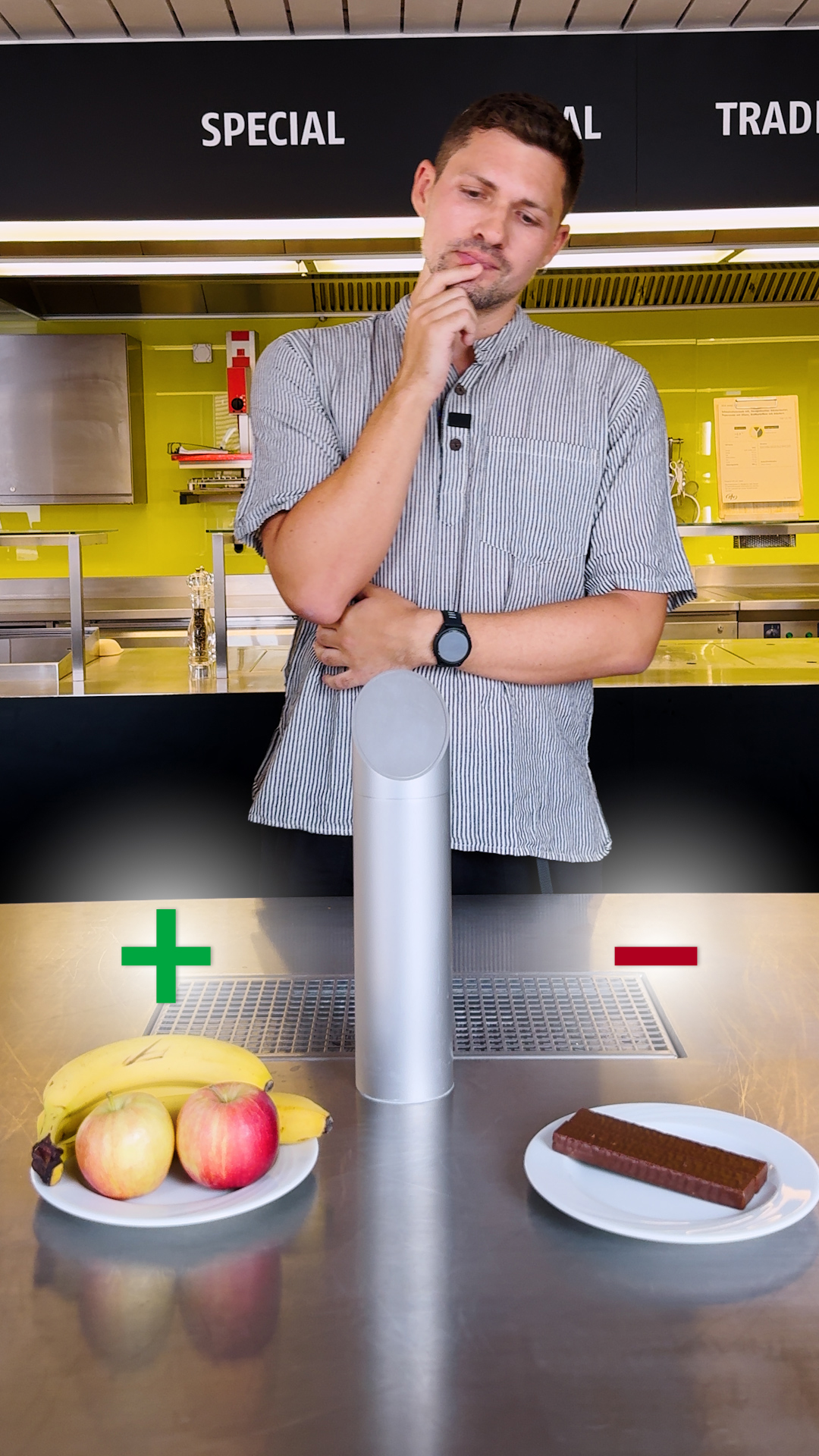











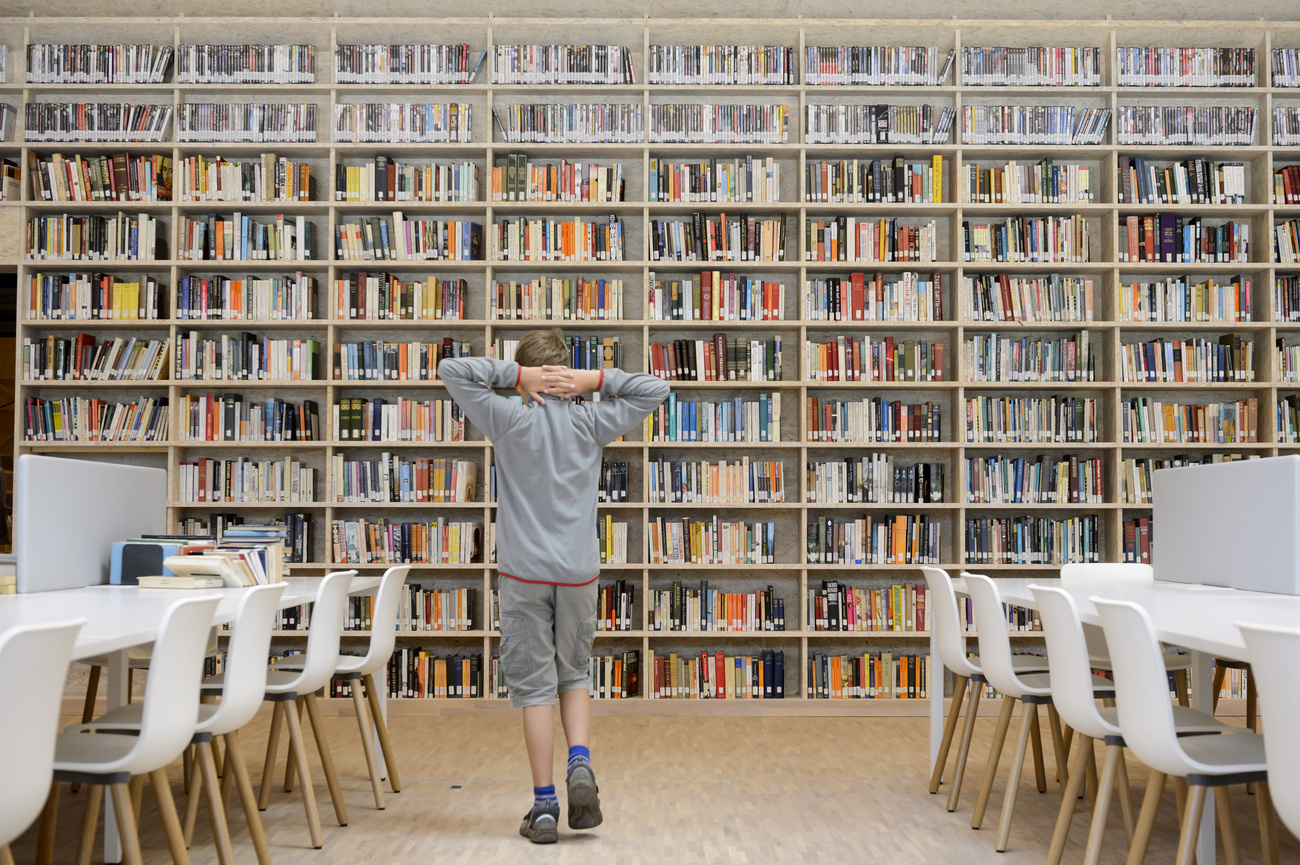




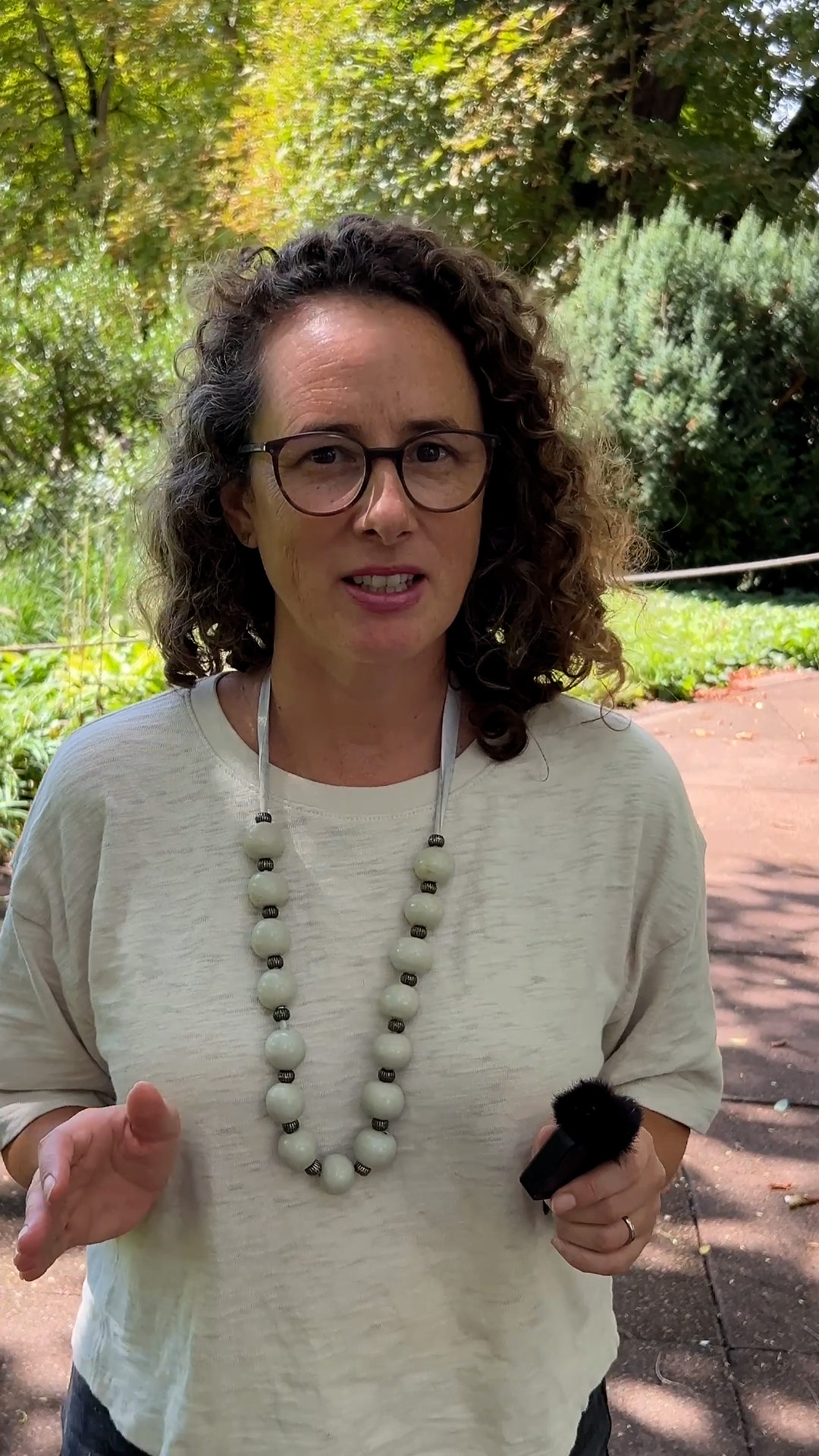




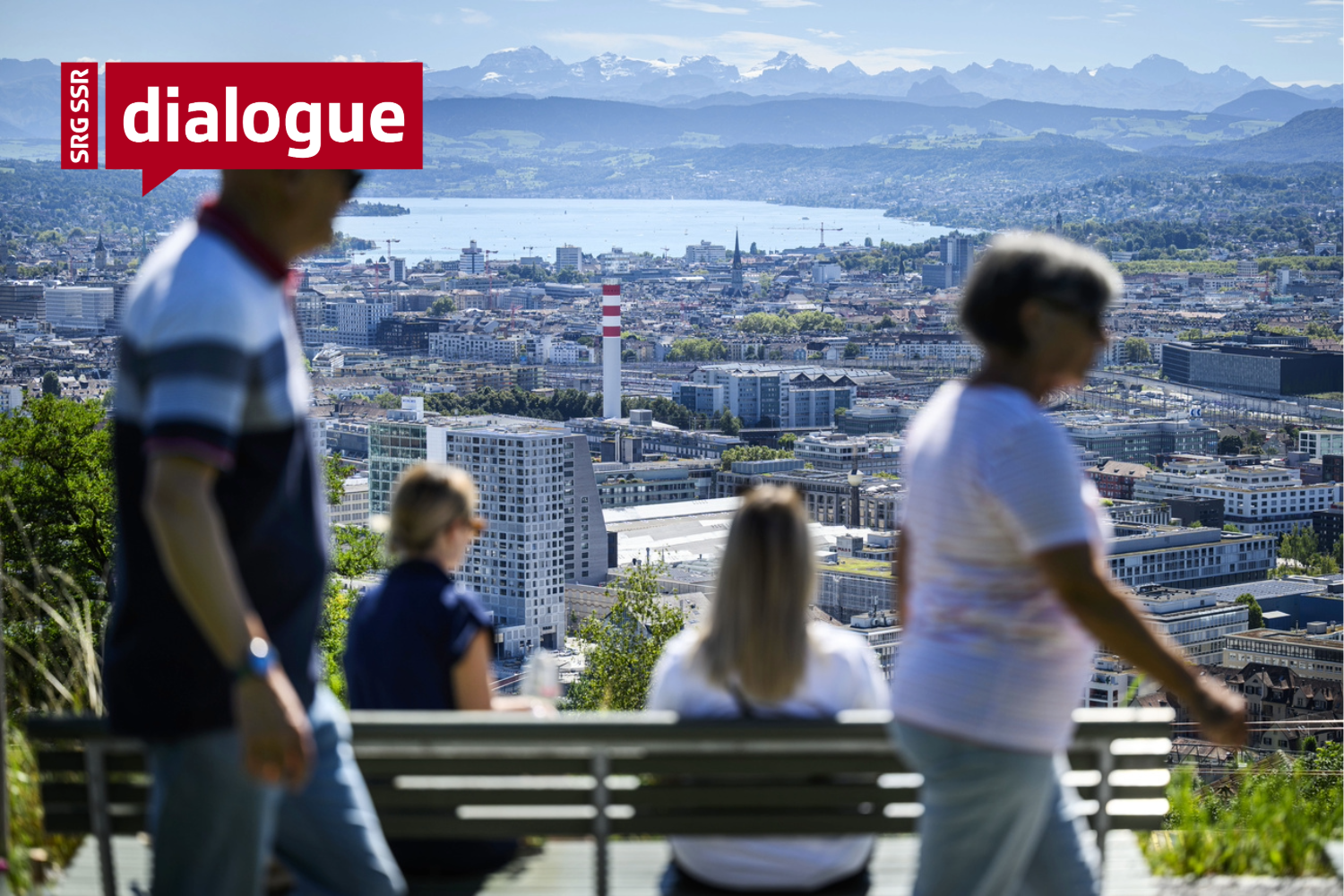












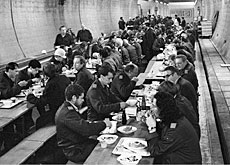

You can find an overview of ongoing debates with our journalists here . Please join us!
If you want to start a conversation about a topic raised in this article or want to report factual errors, email us at english@swissinfo.ch.